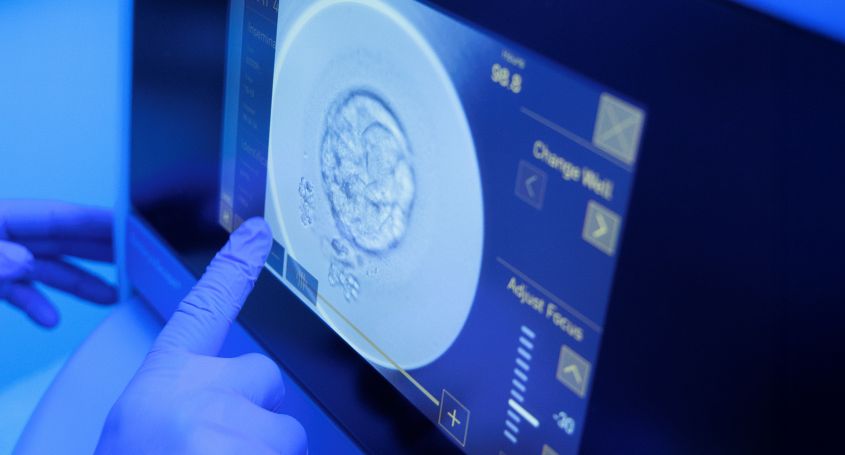Wanting to become parents and not being able to achieve this naturally is emotionally upsetting for the couple. Infertility can be due to both male and female factors. Studying the quality of the sperm is a first step in trying to discover the cause of possible male infertility .
Where can I have a male fertility test?
This test can be performed in any assisted reproduction centre or hospital with a reproduction unit. The tests are covered by social security if the necessary requirements are met. The specialist doctor to perform the test must be a urologist-andrologist. After a physical examination, a spermogram will be performed.
Analysis of spermogram
The spermogram or seminogram is the basic analysis of the semen sample where a sperm count is performed and the quality and quantity of the spermatozoa are measured. This test measures both macroscopic parameters: liquefaction, viscosity, volume, colour and pH; and microscopic parameters: concentration, motility, vitality and morphology of the spermatozoa and presence of leukocytes.
Depending on the result of the semen analysis, the physician may also include other tests to determine male fertility such as a hormone analysis, karyotype study or sperm DNA fragmentation study.
How can I improve semen quality and what food can help?
Diet and lifestyle greatly influence semen quality. In a review of the medical literature, several semen parameters were found to be positively associated with a diet rich in fish, fruit and vegetables. Fruits and vegetables are rich in folates (protective against DNA damage), vitamin B6, and antioxidants such as vitamin C, ß-carotene and vitamin E. Fish consumption in turn provides unsaturated fats, including omega-3, a precursor of eicosanoids, which contribute to sperm formation and have a positive impact on testicular function.
The researchers also saw a negative effect of diets with excess meat (especially processed meats) and dairy products as sources of saturated fats. These fats would interfere with sperm membrane maturation and would also have a negative impact on testicular function, with a reduction in free testosterone. The increased presence of natural and synthetic oestrogens, especially in processed meats, could also explain the link between excessive meat consumption and poorer sperm parameters.
Finally, lifestyle is also important. Harmful habits such as smoking and alcohol abuse or being overweight and lack of physical activity have been shown to be detrimental to sperm quality.















